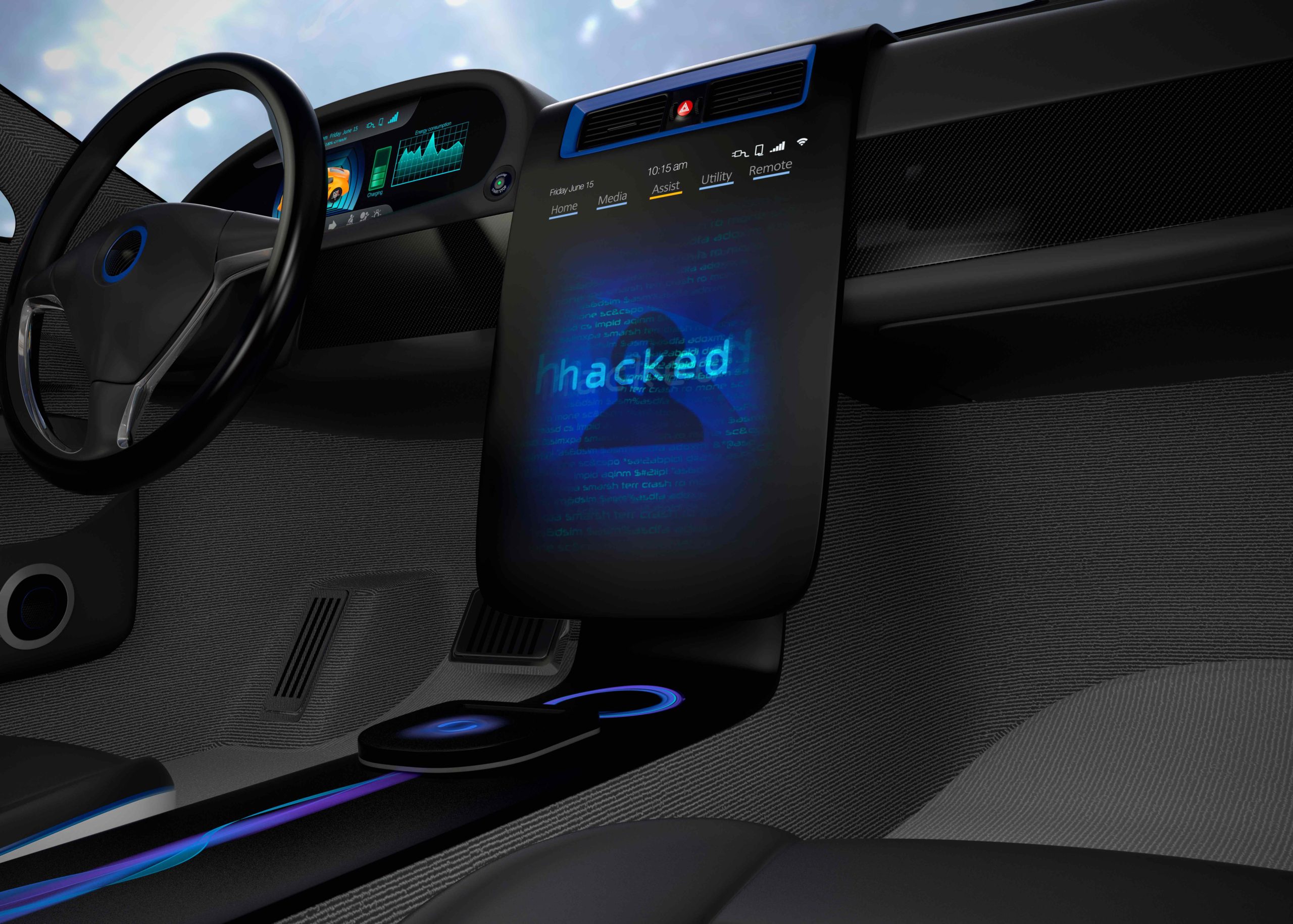The 21st century has brought countless advances in technology, including driver assistance equipment. Numerous modern day drivers operate automated vehicles with features such as sensors, automatic emergency braking, forward collision warning, and computer systems. These features are designed for safety and convenience when used properly – but sometimes the driver isn’t the only person in control of the vehicle and the information contained in its systems.
Cybersecurity & Car Accidents
Can a hacking incident affect your car accident injury case?
Absolutely.
Most states have their own set of laws regarding unauthorized access of computer systems. Federal law states that hacking is prohibited – there is even a federal statute in place called the Computer Fraud and Abuse Act (CFAA). This statute allows for private lawsuits to be filed against violators.
Hackers are known for maintaining anonymity, but there are ways to catch them so they can be sued. The identity of a hacker can be discovered and proven in a few different ways.
- Forensic analysis.
- Help from outside experts.
- Cell phone records.
- Court sanctioned discovery tools.
- Tracking unauthorized credit card purchases.
If you have been in a car accident and suspect that your vehicle has been hacked, it’s important to contact the police and an attorney as soon as possible.
Why Would Someone Want to Hack a Car?
Just like hackers that infiltrate your social media accounts, vehicular hackers are generally in it for profit, or to cause chaos.
- Many vehicles automatically connect to the driver’s cellphone, which contains important personal information such as credit card numbers, passwords, and sensitive documents.
- If your car has a GPS, or connects to your phone’s GPS, hackers can gain access to private data including the places you go, where you live, and your workplace. They can also discover your schedule and routines.
- Hackers can also obtain control of the car itself. They can disable brakes, force acceleration, and even disable vehicle diagnostics to cause collisions and traffic jams.
- Your keyfob range can be extended so that a hacker can unlock your vehicle after you’ve moved fifty or so feet away. This makes theft a piece of cake.
The above are more than enough reason to take vehicle cybersecurity seriously.
Cybersecurity Methods
According to the NHTSA, a multi-layered approach is the most efficient way to protect yourself, and your information.
- It’s important to have protection in place such as antivirus software, firewalls, intrusion detection and prevention systems, and DNS filters.
- Use strong passwords, avoid programming your home address in the GPS, and be on the lookout for suspicious attachments which could contain viruses.
- Don’t leave your password lying around.
- Keep up with all software updates to reduce vulnerability.
- Check vehicle recalls You can find recall information here.
- Limit your use of wireless or remote systems, which put your vehicle at higher risk of being hacked because they are generally controlled online.
Once the police have caught the perpetrator, your personal injury attorney will help you with your case in various ways to ensure you get the compensation you deserve.
- Gathering and presenting evidence.
- Calculating the value of your personal injury.
- Handling communications with the insurance company.
- Guiding you through the legal
- Overseeing legal paperwork to make sure the appropriate forms are filled out properly and submitted on time.
- Fighting for the financial reparations you need.
If you’ve been in a car accident and another party is at fault, contact one of our personal injury attorneys as soon as possible. Call our Kansas City law firm at 816-531-6006 to schedule your initial consultation where you’ll receive free legal advice from a trusted lawyer near you.







